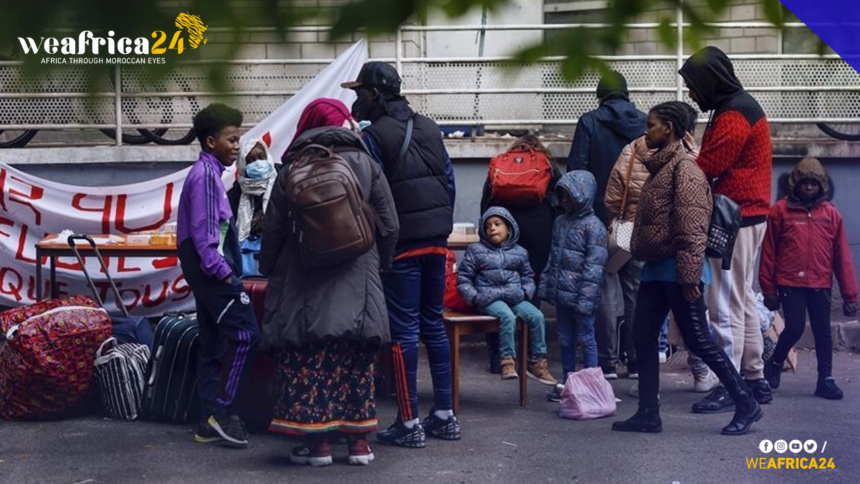European Union leaders convened on Friday in Spain, to discuss the primary text of the migration reform policy in Europe, which was reached during their meeting in Brussels on Wednesday.
This text aims to coordinate a collective response in case of a significant influx of migrants to one of the European Union member states, similar to the refugee crisis of 2015-2016. Notably, it extends the possibility of detaining migrants at the external borders of the bloc for up to 40 weeks and expedites asylum applications for a greater number of arrivals (from countries with an acceptance rate of less than 75%), making deportation more efficient.
The negotiations for this text will now be undertaken by the Spanish presidency of the EU, in collaboration with members of the European Parliament.
This text, which constitutes the final part of the “Asylum and Migration Pact” in the European Union, had faced objections from Germany for several months, primarily due to humanitarian reasons.
However, in late September, the consensus was finally achieved, garnering Berlin’s approval. Nevertheless, Italy subsequently expressed its disagreement.
Italy’s objections are centered around the role of non-governmental organizations (NGOs) in rescuing migrants, with Rome accusing Berlin of funding numerous humanitarian relief organizations operating in the Mediterranean.
Italian Prime Minister Giorgia Meloni called last week for NGOs involved in migrant rescues in the Mediterranean to disembark rescued individuals in countries flying their flags on the vessels they use.
An agreement was reached recently to phrase this point in a way that secured the support of both Italy and Germany. The understanding entails the removal of this contentious reference from the text’s body while retaining it in the footnotes.
Following this, Giorgia Meloni stated that “the Italian position has prevailed.” Meanwhile, a German government source welcomed the formulation as one that “cannot be used as a pretext to trigger the ‘crisis mechanism,’ which grants exceptional powers in case of an asylum system crisis.”
German Chancellor Olaf Scholz argued that the agreement on this text “is expected to effectively curb irregular migration in Europe and permanently alleviate the burden on countries like Germany.”
On Wednesday, Austria, Slovakia, and the Czech Republic refrained from voting, while Poland and Hungary opposed the agreement, according to a diplomatic source.
This reform aims to prepare the EU for potential future migration challenges while taking into account the humanitarian aspect and the responsibilities of member states in the Mediterranean.
The Summit will likely further delve into the topic and set the course for the EU’s migration policy in the years to come.







